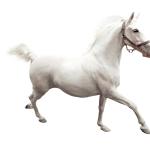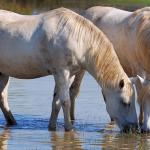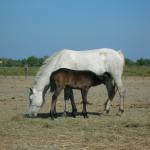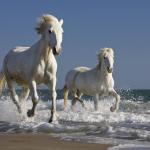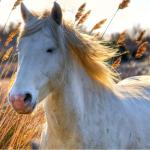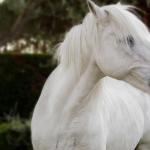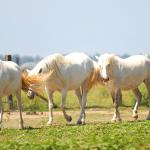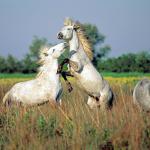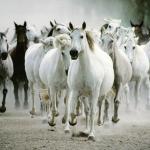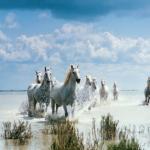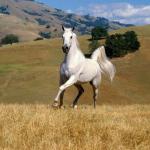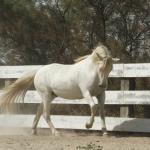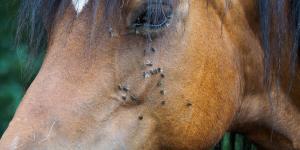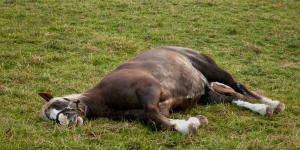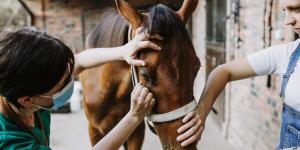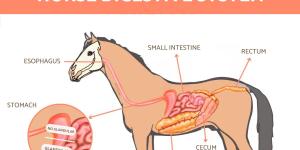Camargue
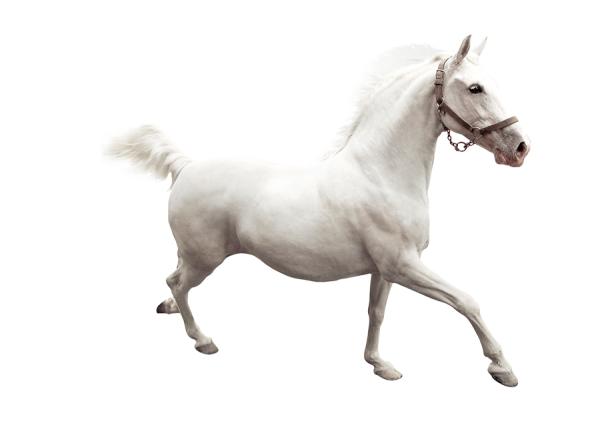
The Camargue is a breed of horse that comes from the Camargue region located on the French south coast. It is considered a symbol of freedom, with a tradition dating back to antiquity. In fact, the Camargue was known to be employed by both the Phoenician and Roman armies. Part of their reputation comes from their hardiness and the fact they can endure some of the harshest conditions.
At AnimalWised, we provide more information about the origin of the Camargue horse breed, as well as their physical characteristics, temperament and health information. We also provide photos of Camargue horses so you can see what they look like for yourself.
- Europe
- France
Physical characteristics of Camargue horses
While we may know them as a type of beautiful white horse, the Camargue is actually born black in color. When they are young we can their hair has this dark hue, but it is not until they reach sexual maturity that they develop white fur.
They are not particularly large, measuring between 1.35 and 1.50 meters (4.4-5') tall at the withers. Despite this, the Camargue has great strength, meaning they can be ridden by adult riders. It is a strong and robust horse, weighing between 300 and 400 kg (660-880 lb). The Camargue is a horse that is currently used in dressage, as a working breed or for general equestrian purposes.
Camargue horse character
The Camargue is generally an intelligent and calm horse that relates easily to their caretaker, with whom they quickly gain confidence.
Camargue horse care
We must provide clean and fresh water in abundance, something essential for its development. Grass and feed concentrates are important. If their feed is based on hay, we must make sure to offer at least 2% of its weight each day in hay. A suitable stable will help them withstand weather conditions as the wind and humidity are not favorable for them.
If we ride them regularly, we must make sure their hooves are clean and do not have cracks or become loose. The legs are vital for a horse's well-being and not paying attention to their legs can lead to serious problems in the future.
The cleanliness of their stable is also very important. If you are not careful, poor hygiene can negatively affect the hooves or lungs. Candidiasis is the disease most related to poor hygiene.
Camargue horse health
We need to regularly check them for scrapes, cuts, and bruises. We recommend having a first aid kit on hand to provide immediate treatment if needed.
If you see signs of illness such as watery eyes or nose, as well as coughing or excessive saliva, you should go to a veterinarian for a thorough examination. They will be best able to rule out any serious problem.
Camargue photos
